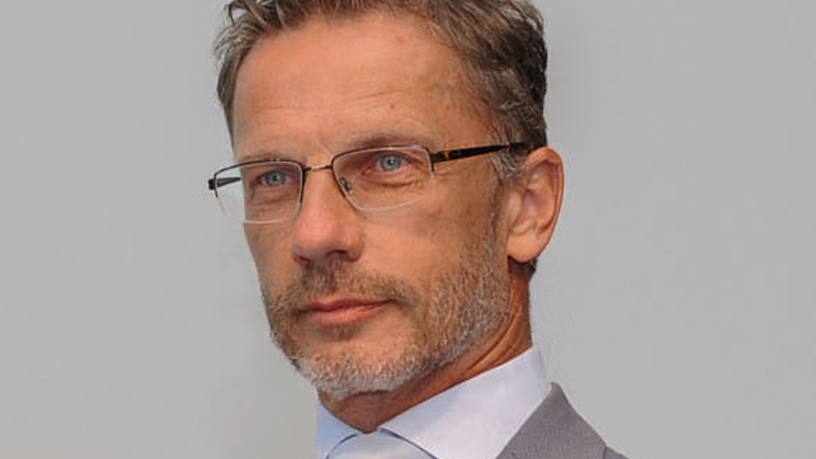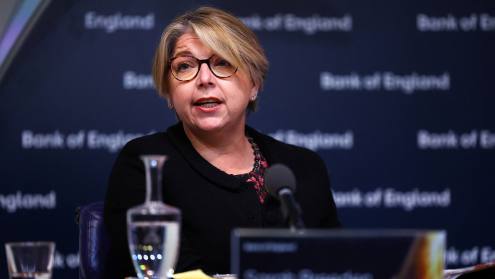Q: How did the Croatian banking sector perform in 2021, and what do you expect for 2022 and 2023?
A: The banking system has weathered the pandemic well. Ample policy support kept bank customers afloat until the rebound kicked in. The recovery was quick and strong, with the economic growth exceeding pre-pandemic levels last year. Growth remains vigorous in the face of the global slowdown.
Bank profitability has also fully recovered, while capital ratios are at historic highs. Domestic deposits are plentiful, providing cheap and stable funding for banks, while non-performing loans are declining further from an already low level. In our baseline scenario, we expect such favourable developments to continue.
Unfortunately, the economic outlook is at the moment shrouded in uncertainty, as a result of the war in Ukraine. If the energy supply to Europe is severely disrupted, by next year this might trigger a continent-wide downturn and the Croatian economy would probably follow the euro area in slipping into a recession.
Q: Where are the main opportunities for the Croatian economy over the next year or two?
A: Prospective membership in the euro area and Schengen will further boost Croatian competitiveness.
In the face of shortening global value chains, Croatia could benefit from the relative proximity to key manufacturing hubs in Europe. Moreover, cutting border checks and easing payments will provide a push to the tourist sector.
Finally, ample EU funding for infrastructure needs, not least through NextGenerationEU [NGEU], will provide a cyclical boost and improve the longer-term productive capacity of the economy.
The total funding available to Croatia for investments, mostly in digitalisation and green transition, through the NGEU fund amounts to approximately 10% of gross domestic product. If implemented properly, reforms envisaged by NGEU could mitigate structural shortcomings, resulting in higher potential output growth and a more resilient economy.
Q: What impact will joining the euro have on the country’s banking sector?
A: Euro adoption will virtually eliminate the foreign exchange risk from the highly euro-ised Croatian economy and the banking system, facilitate international trade and investments, and improve overall resilience to different shocks.
While euro adoption will be an operational challenge, bringing one-time adjustment costs, it also will reduce regulatory burdens and cut current liquidity requirements. This will provide significant headroom for banks to continue expanding their operations and improving profitability.
A more robust economy and financial system is bound to improve risk perception and credit ratings, while easing access to finance. Unfortunately, the economic aftershocks of the war in Ukraine and sanctions may soon put this resilience to the test.
it will provide significant headroom for banks to continue expanding their operations and improving profitability
Q: From a banking sector perspective, how challenging will the adoption of the euro be?
A: Banks are the key players in the euro introduction process. They need to convert all domestic money balances and non-cash payments into euros from day one. Also, they need to provide a logistical backbone to the project by timely distribution of the bulk of the euro notes and coins to the general public.
Banks will have to perform these tasks on top of their regular operations. We have very good communication and co-operation with banks on the euro adoption process, and I have no doubt that we will manage operations seamlessly.
Q: Do you see any other major developments in the banking sector in the near future, like further consolidation?
A: Overbanking is a major problem across Europe and much of the world, as failing institutions have often been rehabilitated, congesting the market with weak banks. Our regulatory track record is tough in this respect as well. Over the past quarter-century, the number of banks in Croatia has been reduced by about two thirds. Weak banks have been pushed out of the market, or were absorbed by stronger rivals.
Bank rehabilitation has in Croatia been the exception rather than the norm. Consistent application of such an approach has resulted in a strong and profitable banking system with no immediate need for further consolidation.
Q: What pressures are Croatian banks likely to experience in 2022-23?
A: Banks and their customers will have to grapple with gradual increases in policy rates. It’s a mixed bag for banks. On the one hand, it will be an opportunity to widen margins and boost interest income; on the other hand, rising rates could mean more non-performing loans.
Still, accession to the euro area will somewhat dampen the pressure on banks to increase rates, as aligning our monetary policy stance with the European Central Bank will imply some loosening of local monetary conditions.
The pandemic also provided a great push to digitalise. Banks need to harness this in order to further optimise their costs and maintain competitive position against more agile, tech-savvy competition.












